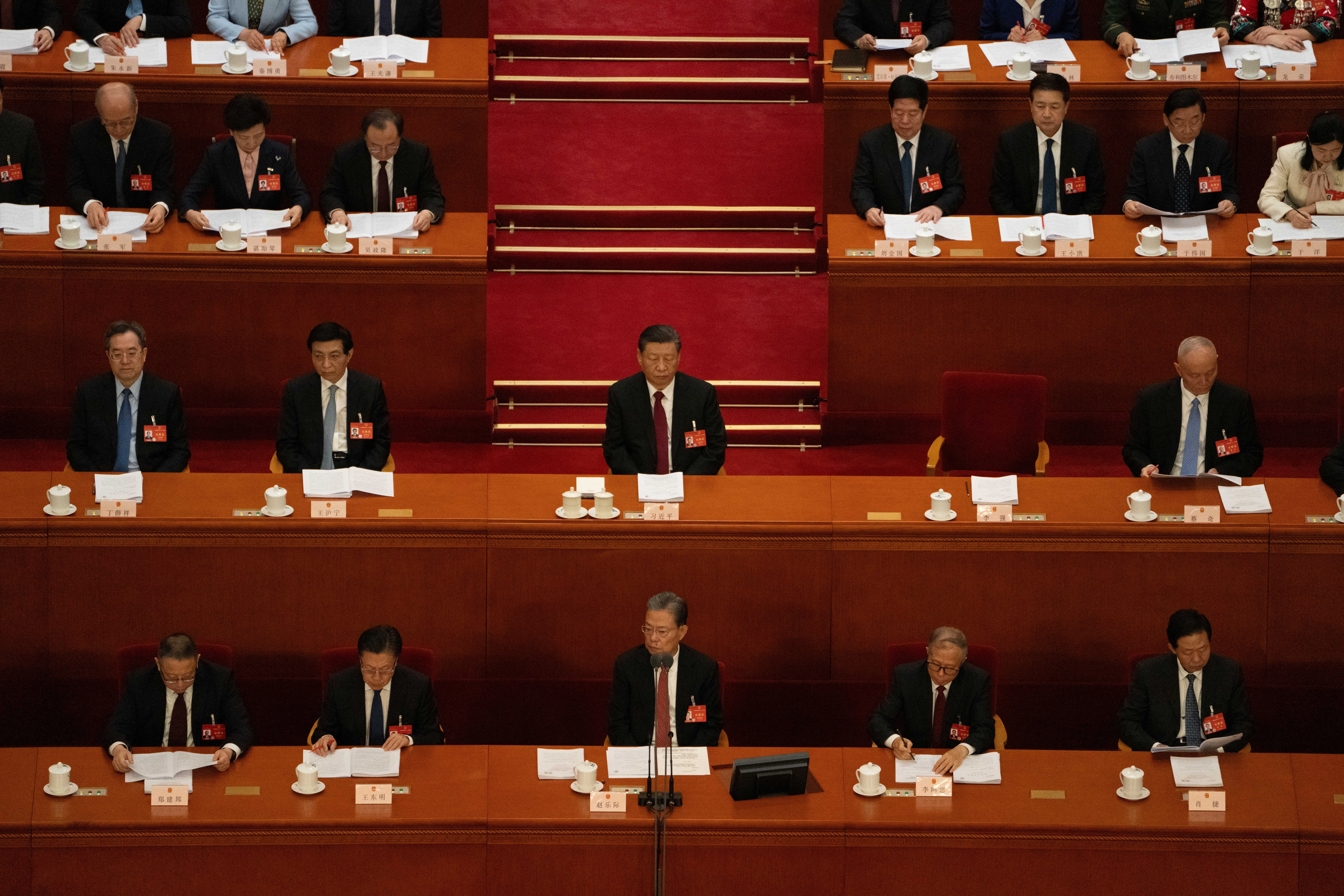The Ongoing Tory Crisis and Incompetence
Many schools, hospitals, and other public buildings are at risk of collapse due to the use of RACC, or ‘aero bubble, concrete from the 1950s through the 1990s. Civil servants have been warning the Tory government since 2022, but the announcement of schools needing work was only released just before school starts this week. According to the same civil servants, the refusal to deal with the issue was to avoid increasing public spending. As we write, the government does not even know how bad the situation is as they scramble structural engineers to survey these buildings. Tory cuts in public services like education are combined with utter incompetence.
You could pick practically any area of our society and find the same mess. The refrain that nothing seems to work anymore is heard more and more in the media and in everyday conversations. Privatised water companies have made their shareholders rich while sewage is dumped in our seas and rivers. Energy companies that used to be publicly owned have made gas and electricity more expensive than necessary and are bailed out anyway by the government. Private rail companies have collapsed and have been effectively renationalised by a Tory government.
“The refrain that nothing seems to work anymore is heard more and more in the media and in everyday conversations.”
Over a hundred thousand people are estimated to have died while on hospital waiting lists. Hospitals, schools, and other public services cannot recruit as the government refuses to pay a decent wage. Social care for old or young people is largely privatised but makes its profit from public money. Old people and young people at risk are inadequately cared for at best and, in many cases, more or less abused. The Trussterfuck interlude has made mortgage rates rocket, leading to people losing their homes or falling into poverty. Renting has become a much bigger part of the housing market, and rents have gone up in step with the interest rate rises. So much for the Tory propaganda of a house-owning democracy, as far fewer younger people today can now afford to buy.
All the opinion polls suggest that the cost of living is the key issue for people, and most economists do not think Sunak can turn any of this around by the 2024 election. Faced with this reality, Sunak has tried to use culture war and anti-migrant lies to turn things around. The Tories narrowly won the Uxbridge by-election by focusing solely on opposing the expansion of the Ultra Low Emission Zone to all of London. Sunak thinks that retreating from their even more limited green transition measures could win votes. Apart from exaggerating what happened in Uxbridge, where Labour’s line and tactics were also poor, the polls nationally show that many core Tory voters are not keen on watering down green measures.
The racist offensive on stopping ‘small boats’ crossing the channel is not even working on its own terms since the numbers are not declining. Stacking refugees, who are often traumatised, into overcrowded accommodation on a barge that had Legionnaires disease has backfired. Even the fire service and local authorities deem the barge a fire risk. It seemed an ideal way to be seen as cracking down on migrants and a sure bet for the racist tabloid press to relay the message. Once again, sheer incompetence combines with callousness. Despite claiming that Labour is driven by lefty lawyers who defend migrants rights (if only this were the case!) Starmer’s party is seen in the polls as better able to deal with the issue.
Even the Tory press is speculating, not on whether Sunak can beat Starmer but on how well or badly he will lose. Polls have been stable for some time, giving Labour a lead of between 20 and 14 percentage points. Business leaders cannot even get tickets to have stalls at an oversubscribed labour conference. Key capitalist influencers like the Financial Times or the Economist are very relaxed about the next Labour government. Why shouldn’t they be, given the tsunami of U turns on any policy that even mildly affects their interests? Whether it is the dumping of:
- all of Starmer’s ten pledges in the post-Corbyn leadership contest,
- Labour conference policies from the last few years
- or even promises made a few months ago on scrapping the two-child benefit cap.
Just last week, Labour MPs were surprised to see major progressive tax changes and Labour policies, like a wealth tax, pegging capital gains tax to income tax rates, or restoring the higher tax rate, summarily dumped by Rachel Reeves, the shadow Chancellor.
Starmer’s Cautious Approach as Labour Leader
Even successful policies from the last Blair government, seen as a successful model by the Starmer team, such as the Sure Start centres for helping families, have been put out of bounds. When asked why she was ditching progressive tax measures, Reeves responded by saying she did not need them because her spending programme was already covered by the minor changes she is making on applying VAT to private school fees or ending non-dom status.
“Even successful policies from the last Blair government, seen as a successful model by the Starmer team, such as the Sure Start centres for helping families, have been put out of bounds.”
The idea that you can deal with any of the crises mentioned above without either massive new state spending or taking utilities back into public ownership is just an illusion. Starmer’s response is that by becoming the fastest-growing G7 economy through government-industry partnerships (essentially big subsidies to big business), we will be able to build a fairer society. It is a gloss on trickledown economics, but there is little evidence that growth will lessen inequality; indeed, the record of the Blair government was that although some progress was made on absolute poverty through tax credits, inequality actually got worse. 70 economists—not a radical left group—have even written a letter to Starmer criticising the caution of his programme.
So how should the left respond to the current political situation and the likelihood of an extremely moderate Labour government?
Unbelievably, some Labour supporters, like the veteran Guardian journalist Polly Toynbee, still have faith that there is a radical flame lurking deep in the Starmer team. I remember people saying the same thing about Blair. It was all a clever trick—look moderate to get into government and then carry out some real changes. To be fair to Blair, he disabused people of this illusion from the start. Starmer is no different. Toynbee also refuses to face the reality of more U-turns before the election. She makes a big play, like Angela Rayner, that the proposed changes to the labour law have not been watered down and will make a difference. Except that the changes will now emerge from a consultation with their business friends. Big business will exert pressure through the markets on a Labour government if it crosses any of its red lines, so the final legislation may not be so radical.
The Left Response – Support Labour to Oust Tories, But Build Alternative
Without sharing these illusions, it is still important for all of the left and progressives to vote against the Tories in order to kick this extreme anti-working-class government out. In most places, this will mean a vote for Labour. If Corbyn stands, then this would be one place for a different tactic. The majority of working people, especially those who have been taking strike action against the Tories, will vote Labour to get rid of the Tories. A significant minority will have few illusions that Labour will make significant changes to their lives. However, they and the vast majority are in favour of even the small steps the Labour government will take, for example, limiting false self-employment or extending rights to holiday and sick pay. People also welcome the green transition policies, even if they are pushed back by a couple of years. In other words, we recognise there are some real material policy differences between a Tory government and a Labour one.
We support these first steps and push for more radical ones. At the same time, the potential for struggle that challenges the traditional leadership of the movement is greater under a Labour government. Unlike the Blair government, this one is coming in after a period of relatively bigger strike struggles. If you have the biggest union, Unite, refusing today to sign up to the Labour programme on workers rights because it feels it is too weak, then the potential for that union to adopt a critical posture towards a new Labour government is likely to be stronger.
Greater space will open up in the unions and indeed in the Labour Party for people to organise for more radical measures. Even if a majority of the union leadership holds back action to defend pay in the public sector in order to keep a Labour government in office, there is greater potential for rank-and-file action. Of course, it is not automatic and depends on how strong the critical left is and how well it organises. So yes, we should reject any slogans that put an equal sign between a Labour and Tory government and be clear about kicking out the Tories by voting Labour in most places.
Does that mean everyone stays inside the Labour Party with the main aim of pressuring it once it is in office? For many thousands of activists who have left Labour in disgust at Starmer’s gallop to the right or have been witch-hunted out of the party, this is not a practical option. It is crucial that these activists do not get demoralised and drop out of politics. Any efforts to organise and build a current or new network with them are to be welcomed. Some will join one of the radical left groups outside Labour, like the Socialist Workers Party or the Socialist Party; others will throw themselves into union activity, community activism, or solidarity campaigns. Conversely, moralistic calls for activists to leave Labour and join us, the ‘true revolutionary path forward’, are not very useful or productive either. It is not whether you are inside or outside Labour that is key, but what you say and do as a socialist—how are you strategically building a socialist alternative?
“It is crucial that these activists do not get demoralised and drop out of politics.”
Groups like Momentum, with thousands of members who remain in Labour while being extremely critical of Starmer, recognise the importance of working alongside all these activists in campaigning outside Labour. In fact, there are so many restrictions on what local Labour parties can now do that it is imperative for left-wing activists to take this approach. Momentum combines the line of pressuring a future government on policy and working on the ground with people outside Labour with an overestimation of the impact of local labour council actions. So it puts resources into developing socialist councillors and praises the community wealth creation projects of Preston or Salford councils. Whatever our criticisms of Momentum, it is important for people outside Labour to reach out and work with them; they represent an equivalent current to the largest left groups. Despite the defeat of the Corbyn project and the crumbling of the gains made by the left in the party, it is arrogant and shortsighted to say the Labour Party is dead to the left.
One initiative called Stop Starmer seems to me to be quite questionable. Crispin Flintoff and his Not the Andrew Marr Show, which hosts weekly Zoom meetings, are promoting it. His shows did a good job of keeping people together despite Corbyn’s defeat and the witchhunt. However, increasingly, it seems to be gathering together more people with ultra-left, sectarian, and campist views. Starmer personalises everything around him. But he is no different from most Labour leaders. It is also ambiguous: do we stop Starmer by not voting Labour? Does it mean we are looking to replace him with another Labour leader? Who is this, and how does this work with a campaign that is made up of people outside Labour? For an average working-class voter who wants to get rid of the Tories, stopping Starmer might mean stopping the victory of a Labour government. Crispin states:
What you’ll get with Starmer is worse than more of the same, it’s an authoritarian government that will pave the way for an even more extreme right-wing regime in five years time. He’s a danger to every working-class person in this country.
So a Labour government is worse than a Tory one! He also argues that a hung parliament is the best result since it would help bring in proportional representation.
Left Unity, the Breakthrough Party, and the Liverpool Community Independents (ex-Labour) councillors in Liverpool have made a public call for a new party or movement called Transform. Around 4000 people have signed up online, and a founding conference is planned. If it keeps left activists together, this is good, and the ten principles laid out can be accepted by most of us on the radical left. It is not the same as the Stop Starmer Brigade. Ecosocialism, feminism, internationalism, and internal democracy resonate with what any party aiming to be an alternative should be.
Challenges and Next Steps for the Radical Left
Strategically, for the revolutionary left, we always state that Labour is not the party we need to bring about a socialist alternative. Even at the height of Corbynism, Marxists always maintained a split in Labour and a new party would be necessary; there would be no seamless transformation of Labour into a party able to end capitalism. However, the tactical question is whether the left can put up an electoral alternative to Labour today. The principles include the idea of standing in elections. It is unclear whether Transform will run a slate against Labour in the upcoming elections.
The radical left has had experience standing candidates against Labour since its re-emergence as a political current in the 1970s. Joseph Choonera in the International Socialism Journal gives a good overview of that experience. Electoral interventions challenging Labour work best where you have candidates who were formerly Labour or where there is a mass base from campaigning or workers struggles in the area. So Galloway managed to win twice, and other candidates did well in areas with a large Muslim community who opposed the Iraq war. Tommy Sheridan, an anti-poll tax leader, got elected in Scotland. Today in Liverpool, ex-Labour councillors like Alan Gibbons, well embedded in his local community, got elected as independents after refusing to vote for a cut budget. Choonera cautions, I think correctly, against an electoral intervention today where these conditions do not apply.
Clearly, if Corbyn or any other current MP links up with a national current like Transform with a strategy of building an eco-socialist alternative, then the picture changes significantly. Dianne Abbott is still suspended and may challenge if she is prevented from standing after being selected by local members. Even better If some arrangement were made with the Greens so that, say, in Brighton, the left current would work to support a Green candidate and in Islington, the Greens would support Jeremy, However, Corbyn may still see his strategy as getting elected and working to re-integrate with the Labour Party. If key trade union leaders also argued for supporting both left-wing candidates and Labour and came out publicly in support of them, that would also provide a different context for initiatives like Transform.

Despite the recent strike wave, the situation is still difficult for the left. There has been no dramatic growth in the currents outside Labour, and the left inside the party is very much diminished. Nevertheless, we must place ourselves alongside the majority of working-class people who want desperately to kick out the Tories. We support all struggles and campaigns, as well as bringing as many people who want to build a socialist alternative to Labour together in networks. At the moment, there is not one single home for this network. A new eco-socialist political culture needs to be patiently built.
Trying to regroup the revolutionary left into a smaller number of groups would be a small step forward in this process since it would create a stronger pole of attraction for non-aligned activists. Another huge elephant in the room that makes electoral challenges and unity on the left so difficult is the undemocratic electoral system. It is in the left’s interest to campaign for proportional representation, which already has popular support.
Art (47) Book Review (102) Books (106) Capitalism (64) China (74) Climate Emergency (97) Conservative Government (90) Conservative Party (45) COVID-19 (43) Economics (36) EcoSocialism (48) Elections (75) Europe (44) Fascism (52) Film (47) Film Review (60) France (66) Gaza (52) Imperialism (95) Israel (103) Italy (42) Keir Starmer (49) Labour Party (108) Long Read (38) Marxism (45) Palestine (133) pandemic (78) Protest (137) Russia (322) Solidarity (123) Statement (44) Trade Unionism (132) Ukraine (324) United States of America (120) War (349)
Latest Articles
- France after the elections: How should the radical left act?In the wake of the National Assembly’s dissolution and new parliamentary configuration, La France Insoumise (LFI) should adopt a clear stance of radical opposition, emphasizing its commitment to anticapitalist principles and democratic reforms while avoiding any compromise with the existing government unless it secures absolute majority support from the populace, argues Gilbert Achcar.
- Why Socialists Oppose the Two‑Child Welfare CapIn this article, Simon Hannah explores why socialists vehemently oppose the government’s two-child welfare cap, arguing that it stems from austerity measures and reactionary views on the poor.
- Hands off Trans KidsA pamphlet from Anti*Capitalist Resistance.
- Two Child Benefit RevoltDave Kellaway responds to the revolt by Labour MPs and others to the Labour government keeping the Tories’ hated two child benefit cap.
- The beginning of the end of China’s rise?This is the second interview in a two-part series. The first interview (“Opposing US militarisation in the Asia-Pacific should not mean remaining silent on China’s emerging imperialism“) covered the nature of China’s state, its status in the world today, and implications for peace and solidarity activism.







It is Alan Gibbons, not Gibson!